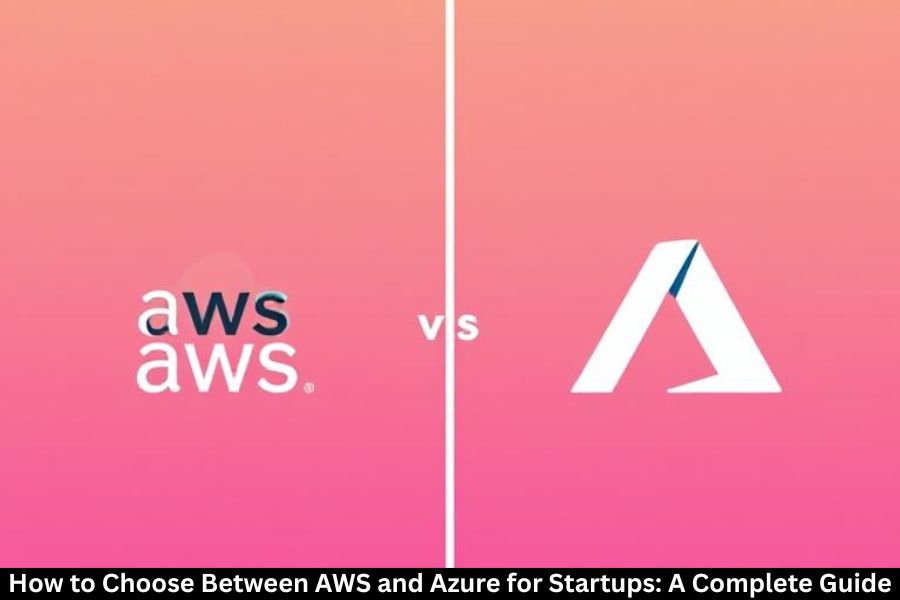Inside the start-up culture are pressure situations with product development, acquiring the first customer, the raising of money to see the first sale, and then the level till growth. Addition of cloud infrastructure brings on more pricing dilemmas. The cloud industry is largely dominated by AWS and Microsoft Azure. However, the question of “how should one choose their cloud provider for their startup?” still remains.
The Cloud Landscape
What Is AWS?
Amazon Web Services, probably the biggest cloud provider in the world, offer hundreds of services-from simple computing power to storage solutions or something more exotic AI or Blockchain solutions. Startups love it for its flexibility and innovation.
What is Azure?
Microsoft Azure is the second-largest cloud platform and is fast becoming the choice for businesses, especially those using Microsoft products themselves. It integrates with Windows, Microsoft 365, and enterprise software.
Why Startups Depend on Cloud Services
Where do startups go to scale using cloud services? Instead of spending big money on physical servers, the cloud bestows agility, flexibility, and pay-as-you-go pricing-just great for lean teams.
Market Share and Popularity
Globally speaking, AWS holds the market crown, but Azure has carved out significant momentum as being-trusted by enterprises-against the backdrop of its very tight integration with Microsoft world and is visiting very strong to that. However, many startups are still now getting launched on AWS, but in some areas, Azure is quickly catching up.
Pricing Models for Startups
AWS Pricing Structure
AWS prices according to usage, ranging from pay-as-you-go, reserved to spot instances. It also gives free credits to qualifying startups under the AWS Activate program.
Azure Pricing Structure
Pay-as-you-go is also allowed in Azure, but it is often thought to be cheaper for businesses tied into Microsoft licenses. Credits and discounted services are given under Azure for Startups.
Free Tiers and Credits
Both providers give free tiers as well as startup credits usually within ranges of $1,000 to $100,000, depending on accelerator programs and partnerships.
Performance and Reliability
With over 30 geographic regions and multiple availability zones, AWS enjoys a massive global network of its own on the other side. They are 99.9% up and running again under guarantee on the SLA. So you should trust on both.
Ease of Use and Learning Curve
For an AWS user, its power is its limitation: intimidating for beginners. Azure, by contrast, feels more intuitive for a startup already working in Microsoft tools-probably Office 365 or a Windows-based environment.
Integration with Existing Tools
- AWS Ecosystem: Integrates with tons of third-party tools, great for startups with custom tech stacks.
- Azure: Integrates with Microsoft Office, Active Directory, and Teams smoothly—making it the de facto choice for a Microsoft-heavy startup.
AI, ML, and Data Capabilities
- AWS: Provides SageMaker for machine learning and data analytics stronger than any AI tool.
- Azure: Offering Cognitive Services and a perfect match with tools like Power BI in data visualization.
Developer Tools and Flexibility
- AWS: Being developer-friendly with APIs and SDKs in multiple languages.
- Azure: Strongly targeted towards DevOps, particularly with Azure DevOps and GitHub.
Security and Compliance
AWS and Azure fulfill stringent compliance requirements like HIPAA, GDPR, and ISO certifications. Both can be relied on by startups in regulated industries (healthcare, finance) for data protection.
Support and Community
AWS boasts huge developer communities and very good tutorials, while Azure has more enterprise documentation and Microsoft support.
Scaling for Growth
Flexibility in the cloud is key when startups scale.
- AWS: Known for hyper-growth, like Airbnb and Dropbox.
- Azure: Powers startups that need enterprise-grade scaling, such as those moving into corporate ecosystems.
Cost Optimization for Startups
Both AWS and Azure provide cost management solutions so that one does not overspend. AWS budgets and Azure cost management are critical for startups running on a tight budget.
Case Studies of Startups Running on AWS vs Azure
- AWS: Airbnb, Lyft, and Slack started on AWS because of its scalability and global infrastructure system.
- Azure: Firms such as Asos and DocuSign grew alongside Azure with its emphasis on Microsoft integration.
Key Considerations Before Choosing
- Budget – Which offers the best credits at your stage?
- Team skills – Does your team have skills in AWS, Azure, or Microsoft tools?
- Integration – Do you already have Microsoft Office/Windows, or do you have a custom Linux system?
- Scalability – Which platform better fits your long-term growth?
Conclusion
Both AWS and Azure are strong options. For global reach, scalability, and cutting-edge technology, AWS would be the probably best option for your startup. For enterprise support, it would be the smarter choice to go with Azure if your startup is strongly based upon Microsoft tools. Of course, that would be contingent on your team’s skills and budget, as well as the integration requirements required.
FAQs
Which cloud is cheaper for startups?
That depends on the situation. AWS is very flexible in terms of pricing, offering credits. Azure might be cheaper if you have Microsoft licenses in place.
Can I change my mind later and move to Azure from AWS?
Yes, but you have to figure that out now. Both providers offer migration tools.
Which is better for AI and ML projects?
AWS is more equipped with mature ML tools, while Azure Cognitive Services provide something more beginner-friendly.
Do startups get free credits?
Yes, in fact, both offer credits and free tiers as part of AWS Activate and Azure for Startups.
Which one is better for non-technical founders?
Azure may be easier due to its integration with Microsoft products and simpler interface.



